第123章 The End of Thirty Years' Editorship (1)
On the voyage home, Edward Bok decided that, now the war was over, he would ask his company to release him from the editorship of The Ladies'
Home Journal.His original plan had been to retire at the end of a quarter of a century of editorship, when in his fiftieth year.He was, therefore, six years behind his schedule.In October, 1919, he would reach his thirtieth anniversary as editor, and he fixed upon this as an appropriate time for the relinquishment of his duties.
He felt he had carried out the conditions under which the editorship of the magazine had been transferred to him by Mrs.Curtis, that he had brought them to fruition, and that any further carrying on of the periodical by him would be of a supplementary character.He had, too, realized his hope of helping to create a national institution of service to the American woman, and he felt that his part in the work was done.
He considered carefully where he would leave an institution which the public had so thoroughly associated with his personality, and he felt that at no point in its history could he so safely transfer it to other hands.The position of the magazine in the public estimation was unquestioned; it had never been so strong.Its circulation not only had outstripped that of any other monthly periodical, but it was still growing so rapidly that it was only a question of a few months when it would reach the almost incredible mark of two million copies per month.
With its advertising patronage exceeding that of any other monthly, the periodical had become, probably, the most valuable and profitable piece of magazine property in the world.
The time might never come again when all conditions would be equally favorable to a change of editorship.The position of the magazine was so thoroughly assured that its progress could hardly be affected by the retirement of one editor, and the accession of another.There was a competent editorial staff, the members of which had been with the periodical from ten to thirty years each.This staff had been a very large factor in the success of the magazine.While Bok had furnished the initiative and supplied the directing power, a large part of the editorial success of the magazine was due to the staff.It could carry on the magazine without his guidance.
Moreover, Bok wished to say good-bye to his public before it decided, for some reason or other, to say good-bye to him.He had no desire to outstay his welcome.That public had been wonderfully indulgent toward his shortcomings, lenient with his errors, and tremendously inspiring to his best endeavor.He would not ask too much of it.Thirty years was a long tenure of office, one of the longest, in point of consecutively active editorship, in the history of American magazines.
He had helped to create and to put into the life of the American home a magazine of peculiar distinction.From its beginning it had been unlike any other periodical; it had always retained its individuality as a magazine apart from the others.It had sought to be something more than a mere assemblage of stories and articles.It had consistently stood for ideals; and, save in one or two instances, it had carried through what it undertook to achieve.It had a record of worthy accomplishment; a more fruitful record than many imagined.It had become a national institution such as no other magazine had ever been.It was indisputably accepted by the public and by business interests alike as the recognized avenue of approach to the intelligent homes of America.
Edward Bok was content to leave it at this point.
He explained all this in December, 1918, to the Board of Directors, and asked that his resignation be considered.It was understood that he was to serve out his thirty years, thus remaining with the magazine for the best part of another year.
In the material which The Journal now included in its contents, it began to point the way to the problems which would face women during the reconstruction period.Bok scanned the rather crowded field of thought very carefully, and selected for discussion in the magazine such questions as seemed to him most important for the public to understand in order to face and solve its impending problems.The outstanding question he saw which would immediately face men and women of the country was the problem of Americanization.The war and its after-effects had clearly demonstrated this to be the most vital need in the life of the nation, not only for the foreign-born but for the American as well.